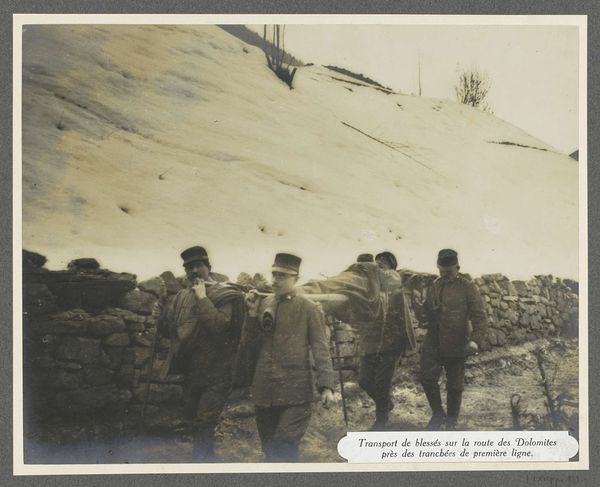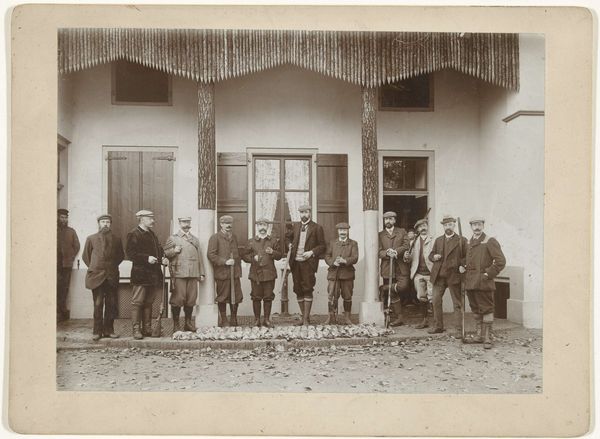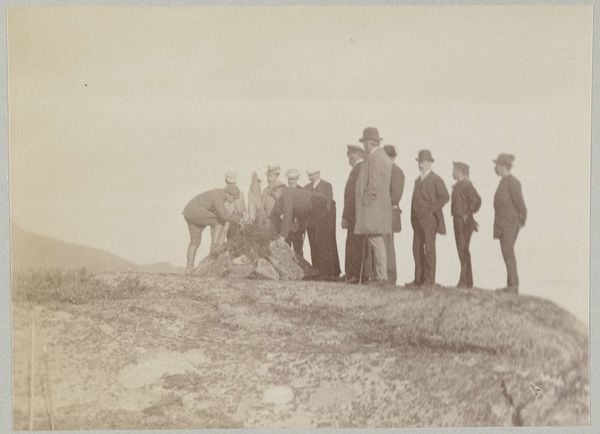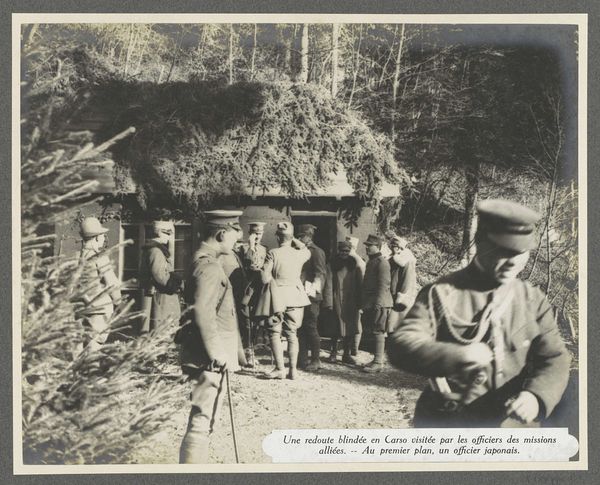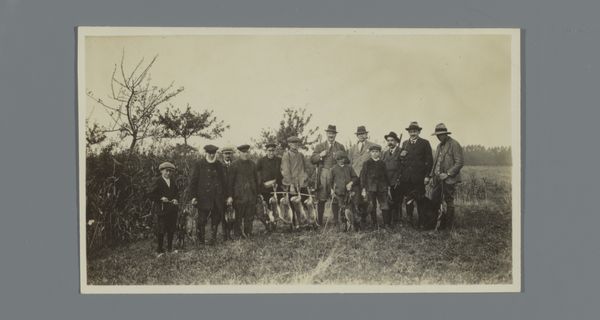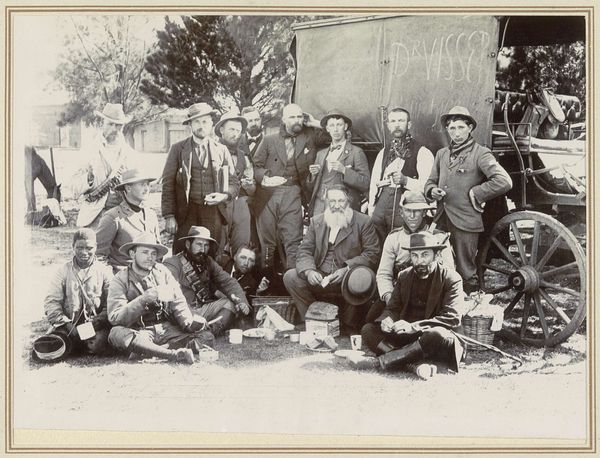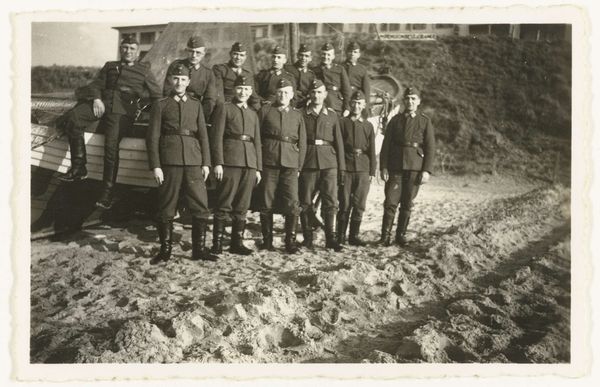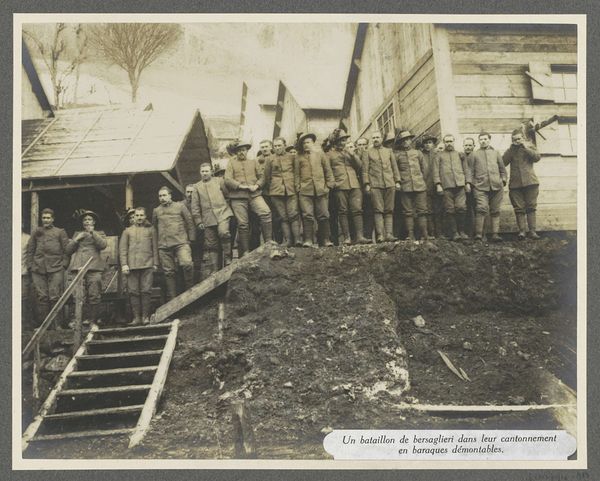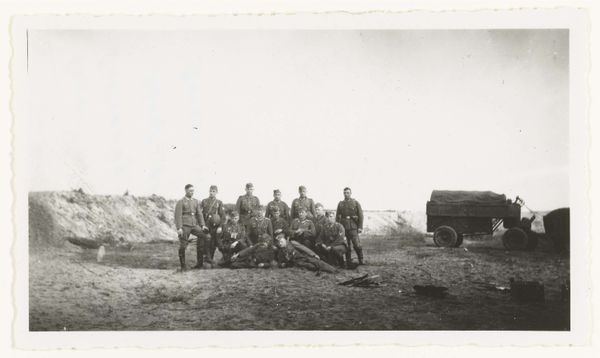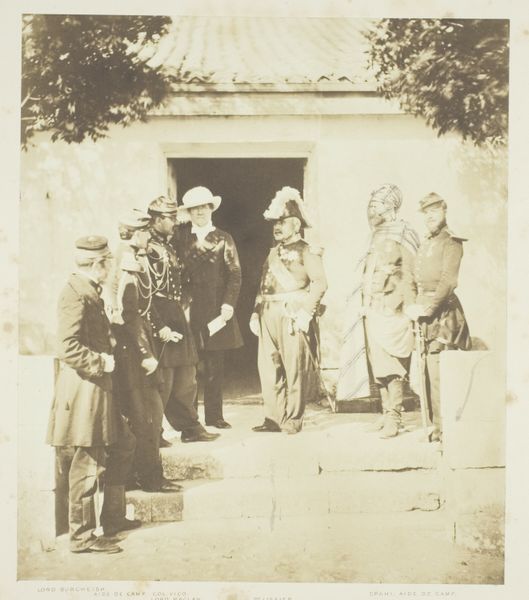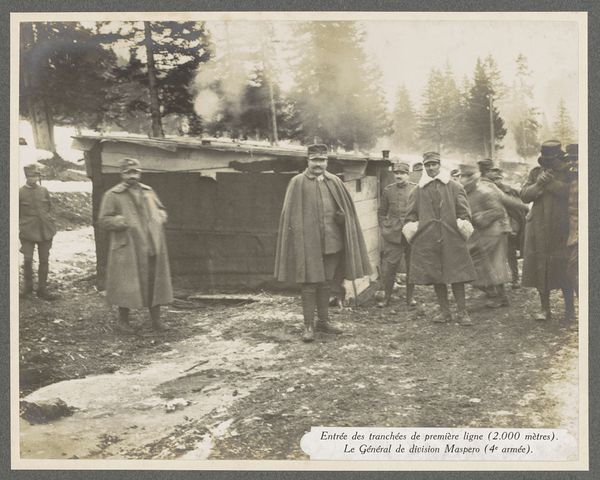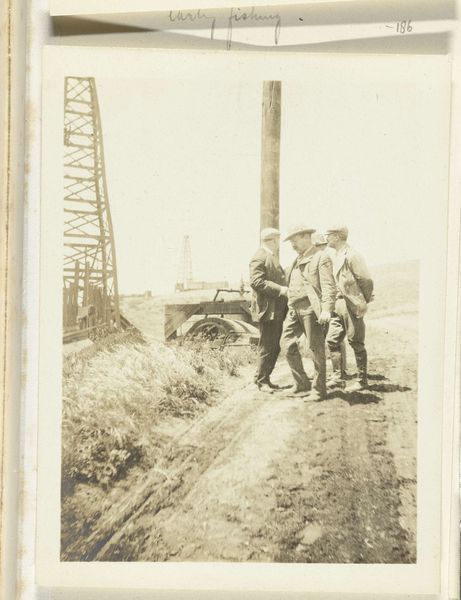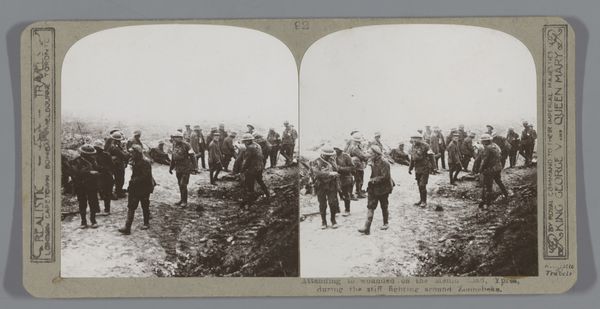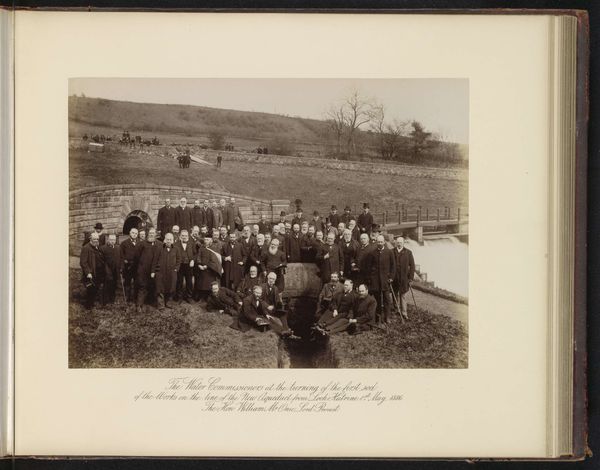
Groepsportret van jagers en helpers, met o.a. een geschoten wild zwijn (derde van rechts Henry Pauw van Wieldrecht) 1897
0:00
0:00
henrypauwvanwieldrecht
Rijksmuseum
photography, gelatin-silver-print
#
portrait
#
print photography
#
photography
#
group-portraits
#
gelatin-silver-print
#
genre-painting
#
realism
Dimensions: height 171 mm, width 226 mm, height 199 mm, width 268 mm
Copyright: Rijks Museum: Open Domain
This photograph was taken by Henry Pauw van Wieldrecht, likely around the turn of the twentieth century. It captures a hunting party, trophies in hand, assembled after a successful shoot. The photographic process itself, like hunting, involves a kind of capture, transforming a three-dimensional reality into a flat image through a complex chemical process. In this instance, the sepia tone suggests an albumen print, a process that involves coating paper with egg whites, then light-sensitive silver salts. This was a relatively common technique at the time. The image hints at social and economic structures, from the guns, dogs and gamekeepers involved in the hunt, to the leisured lifestyle that enabled such activities. The slain animal stands as a testament to the labor and resources invested in the pursuit, but also as a symbol of the power dynamics between humans and nature, and among different social classes. Photography, like hunting, was a tool used to document and reinforce these relationships.
Comments
No comments
Be the first to comment and join the conversation on the ultimate creative platform.
